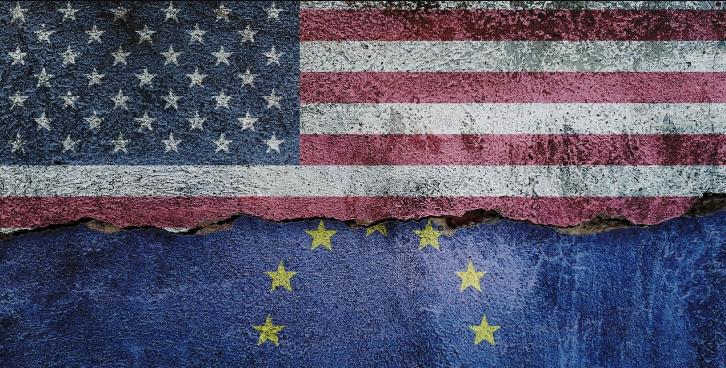The transatlantic alliance has been rekindled in the wake of the Ukraine conflict, yet an undeniable imbalance is emerging. The U.S. economy is not only outpacing the European Union and Britain but is extending its lead. This economic disparity extends to technology, energy, and capital markets, casting a shadow on Europe’s aspirations for “strategic autonomy.”
An Economic Divergence
Back in 2008, the U.S. and EU economies were comparable in size. However, the subsequent years have witnessed a notable divergence. The U.S. economy now stands at $25tn, outstripping the combined economies of the EU and the UK, which total $19.8tn. Such disparity reflects a Europe that is losing ground, with the U.S. firms, notably in technology, establishing dominance. Companies like Amazon, Microsoft, and Apple are leading the charge, and there’s a notable absence of European counterparts.
Technological Disparity
Europe’s technology sector is conspicuously trailing, with no equivalent to the U.S. tech giants. The acquisition of European tech pioneers like Skype and DeepMind by American corporations is a testament to this trend. Furthermore, the European academic institutions feeding innovation in tech are scarce compared to their American counterparts.
The Semiconductor Struggle
The semiconductor industry, a cornerstone of technological innovation, exemplifies Europe’s lag. From holding 44% of the world’s semiconductor production in 1990, Europe now claims just 9%. The U.S., backed by its reserve currency status, is forging ahead with industrial policies to bolster its semiconductor and electric vehicle sectors.
Capital and Energy Dependence
Europe’s dependency on U.S. capital markets is underscored by Paul Achleitner of Deutsche Bank, highlighting the continent’s reliance on American investors for substantial financial undertakings. Energy is another arena where Europe finds itself at a disadvantage. The U.S. benefits from abundant, inexpensive domestic energy supplies, while Europe grapples with soaring prices, exacerbated by the conflict in Ukraine.
Britain’s Brexit Conundrum
The UK, having exited the EU, faces amplified scale issues, with its industry showing signs of lag. Being outside the single market isn’t proving to be the emancipation some had anticipated.
Regulatory Influence and Lifestyle Industries
Europe’s significant regulatory influence, dubbed the “Brussels effect,” and its stronghold in lifestyle industries, stand as solace. Yet, these sectors, including tourism and luxury goods, don’t offset the economic and technological lag.
A Comfortable Decline?
Europe’s allure as a lifestyle destination is undiminished, yet this comfort might be a double-edged sword. The absence of a pressing threat may undermine Europe’s impetus to reverse a decline marking its power, influence, and wealth, leaving it in the wake of a progressively advancing U.S. economy.



